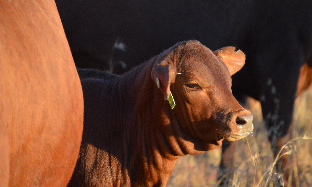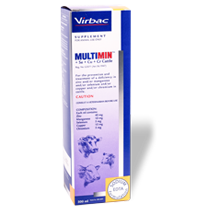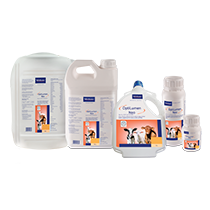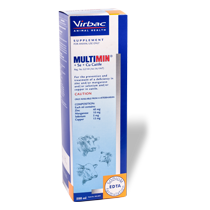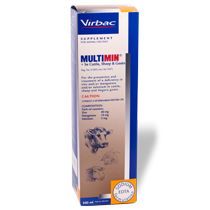
The value of trace mineral supplementation at feedlot induction
Trace minerals are essential for immune function (Arthington and Havenga, 2012) and growth (Spears and Kegley, 2002) of highly stressed, newly received beef cattle. The interactions between nutritional status, immune response, and disease resistance are complex (Spears, 2000). Feedlot cattle may have difficulty meeting mineral requirements depending on the mineral status of individual animals and level of feed intake following feedlot arrival.
Once in the feedlot, animals receive balanced diets with trace minerals included in the feed supplement, but that may not help trace mineral deficient calves catch up. Restoring trace minerals solely through the diet is difficult because newly received feedlot animals display low and erratic consumption.
A trial done by Bailey (2013) shows that it can take up to 6 days for some calves to eventually start eating.
So the majority of weaner calves are not receiving the appropriate nutrition they require for normal bodily functions, growth and proper immunity. Moreover, these animals are stressed, which causes loss of trace minerals, especially zinc and copper.
Fig 2: Effect of disease and stress on urinary excretion of Zn and Cu (Orr et al., 1990)
Stressed animals also produce cortisol, which has an immunosuppressive effect. To make the situation worse, zinc is for example required to regulate cortisol levels, and if deficient, this cannot be controlled optimally.
Injectable trace minerals give producers a chance to rapidly improve trace mineral deficiencies. MULTIMIN contains Zn, Cu, Se, Mn and Cr and has been shown to benefit immunity and production efficiency in over 50 peer-reviewed scientific publications. Multimin has been trusted by feedlot producers for 30 years to supply adequate amounts of these essential trace minerals when it matters most!
Selenium and Zinc are essential trace elements for building up the immune system. Zinc, Copper, Selenium and Manganese are essential for optimal weight gain.
Chromium supplementation for animals in stressed conditions has been proven to reduce immune system suppression. Transported beef cattle supplemented with chromium had better immune responses (increase in antibody titers (Burton et al, 1994)), and increased serum IgM, IgA concentrations (Almeida & Barajas, 2002)).
Trace minerals, in particular Zn, are used mainly for the establishment of immune responses after vaccination. Several studies have shown that MULTIMIN was effective in increasing and/or abating decreases of trace mineral status of vaccinated calves. This resulted in earlier and higher antibody titer production.
Here is one such study showing a statistically significant increase in the production of neutralising antibody titers against BHV-1 (Arthington and Havenga, 2014).
In the end, it’s all about return on investment and this is exactly where Barry van Wyk of Doornkop Beleggings outside Fochville sees the value of using MULTIMIN for his feedlot animals. He says not only does it increase the immunity of his cattle, which is of utmost importance in a feedlot, but as a result, also makes the vaccines much more effective. "For me it's not just about spending the Rands, but also to finally get the return on those Rands spent," says Barry.
60092303AR

